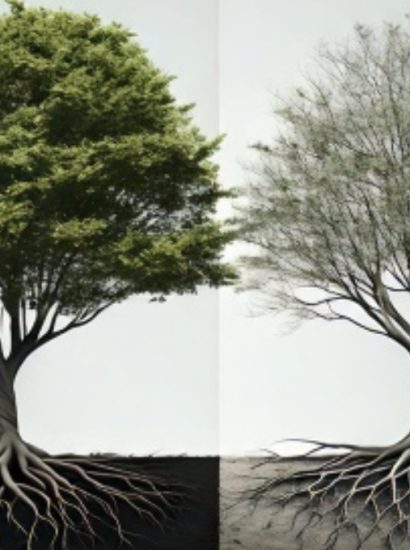This post is also available in: ΕΛΛΗΝΙΚΑ (GREEK) TÜRKÇE (TURKISH)
This article is prepared within the framework of the Inclusive Peacebuilding (InPeace) Project, which is funded by the European Union under the Aid Programme for the Turkish Cypriot community and implemented by the Interdisciplinary Centre for Law, Alternative and Innovative Methods (ICLAIM) and the Human Rights Platform (IHP). InPeace Project aims to generate knowledge, and draw lessons relating to, the operation and effectiveness of the bicommunal Technical Committees. Bi-communal Technical Committee on Gender Equality is one of the technical committees and this article aims to provide assessment of the works done by this technical committee.
The importance of incorporating a gender perspective into peacebuilding and conflict resolution has become internationally recognized over the years. There are two important reasons behind this. Firstly, a gender perspective is crucial to ensure that the process is democratic. The patriarchal system shapes women’s lives and enforces gender roles in societies, which results in women having different perspectives and needs during the peace processes. Women make up at least half of the population and therefore, they should have a place in the negotiation table, at sufficient level to contribute meaningfully to the peace processes. Also, as gender studies evolve and social movements expand, there’s a growing recognition that gender inclusivity shouldn’t stop with just women. Individuals with diverse gender identities and sexual orientations (LGBTI+s) also deserve representation and a voice in these processes for the same reason that their experiences and needs differ. Secondly, a wide range of studies have shown that the meaningful involvement of women in the negotiation process makes the peace more sustainable.[1] Additionally, as countries achieve higher levels of gender equality, the likelihood of conflict resurgence decreases.[2] Thus, gender perspective is a must to prevent the re-emerge of conflict and reach a sustainable peace agreement.
The negotiation processes in Cyprus have long been faced with criticisms regarding how gender is overlooked and that there is no sufficient representation of women in the negotiation table. Women on both sides of the divide have rarely been involved in the negotiations. Even if some women were present during some periods, their roles were very limited compared to their male counterparts. In 2015, the leaders of the two communities announced the establishment of the Bi-Communal Technical Committee on Gender Equality with a mandate to promote representation of women and gender equality perspectives into the settlement process. The Committee was introduced as one of the 12 Bi-communal Technical Committees in Cyprus that work for ‘addressing issues that affect the day-to-day life of people, through encouraging and facilitating greater interaction and understanding between the two communities’ and is operating under the auspices of the UN. This development was welcomed by many feminist and peace activists working for a sustainable peace in Cyprus.
Until today, the Committee implemented several activities, mainly focusing on women’s participation in peace processes, through organising panels and seminars. Aside from this, the main outcome that the Committee had is drafting of the Action Plan announced two years ago (Full title: Action Plan on how to ensure women’s full, equal and meaningful participation in the settlement process/an eventual settlement process), which will be discussed below. While some other Technical Committees, such as the ones on Cultural Heritage, Health and Education have been working on projects with concrete results which benefit of both communities in Cyprus, the Technical Committee on Gender Equality fell short of engaging in such work. The Committee later became one of the Committees that lack regular meetings and good collaboration, which may be a result of the deficiencies in their work structure and methods so far.
Primarily, despite the broad scope of gender issues, the Committee’s focus areas remain undefined. Establishing a framework outlining specific areas and main activities could provide clarity and direction. In addition, the Committee faces ambiguity regarding its approach to gender studies, leaving the definition of the concept unclear. It’s uncertain whether the Committee will focus solely on women’s rights or adopt a more inclusive approach involving both women and LGBTI+s. Once the framework of their work is provided, the implementation of their activities would rely on the funding available, since the Technical Committees do not have a budget allocated from the leaders of the communities. However, the EU is the biggest contributor of the Technical Committees, allocating €32.4 million funds to the Technical Committee on Cultural Heritage since 2011 and €2 million to support the work of the other Technical Committees under its Support Facility to the Technical Committees since 2019. Despite the underspending of the 1st phase of the Support Facility (EUR 337,000 were not spent) the Bi-Communal Technical Committee on Gender Equality only applied for EUR 800 for a roundtable discussion about Women’s contribution to the Cyprus Talks.
Moreover, the Action Plan introduced by the Committee is a two-page document providing recommendations on women’s representation, inclusion of youth and civil society and gender equality perspectives in the settlement process. While the emphasis on civil society inclusion is crucial, organizations focusing on gender within civil society or the youth were not consulted by the Committee, neither during the drafting stage nor in subsequent activities. Although the Committee is one that would require strong dialogue and collaboration with civil society due to its working area, such engagement has not yet taken place. Also, the state of implementation of the Action Plan, signed by the two leaders in February 2022, is unknown.
Finally, perhaps one of the most useful initiatives that the Committee could take would be to better understand the needs of women and LGBTI+s through engagement with civil society, help them reflect those needs in the negotiations and advocate for a more inclusive peace process. Given the prevailing patriarchal dynamics within Cyprus’s peace processes, characterised by limited transparency and accountability, it’s unsurprising that the Technical Committee on Gender Equality often receives insufficient support by the political leaders. Unfortunately, it appears that both leaders have been lacking interest in embracing a vision of gender equality at their negotiations and engagements. This undoubtedly undermines progress and contributes to the overall weak performance in addressing gender equality issues.
This publication was funded by the European Union. Its contents are the sole responsibility of ICLAIM and the Human Rights Platform and do not necessarily reflect the views of the European Union.
[1] Jana Krause, Werner Krause & Piia Bränfors, ‘Women’s Participation in Peace Negotiations and the Durability of Peace’ 1 International Interactions 32.
[2] Mary Caprioli, ‘Primed for Violence: The Role of Gender Inequality in Predicting Internal Conflict’ (2005) 49 International Studies Quarterly 161, Valerie M Hudson and others, ‘The Heart of the Matter: The Security of Women and the Security of States’ (2009) 33 International Security 7, Jenny Birchall, ‘Gender as a Causal Factor in Conflict’ (2019) < https://assets.publishing.service.gov.uk/media/5c866142ed915d07cc393a23/549_Gender_as_A_Causal_Factor_in_Conflict.pdf
Source: A BRIEF ASSESSMENT OF THE BI-COMMUNAL TECHNICAL COMMITTEE ON GENDER EQUALITY






